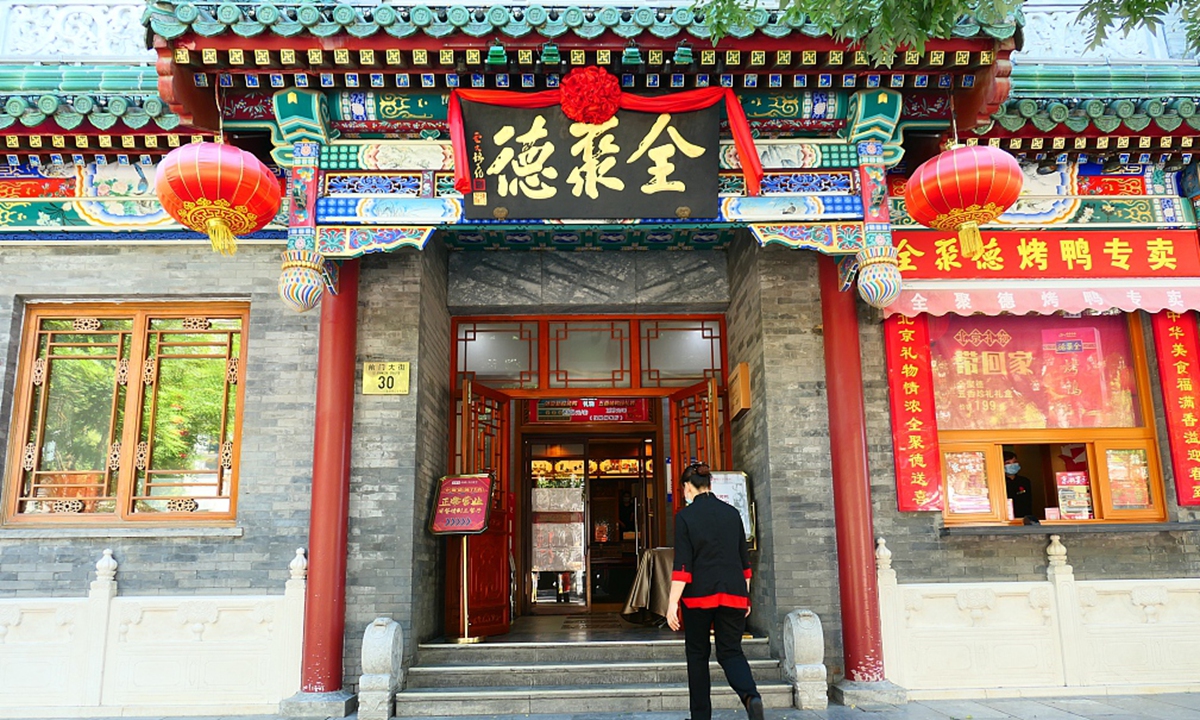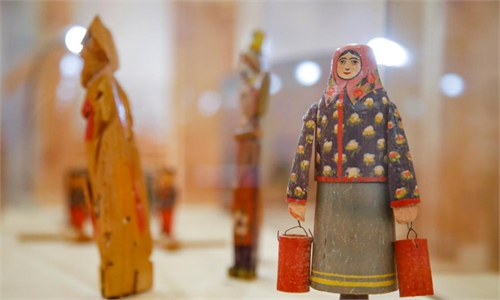ARTS / CULTURE & LEISURE
Time-honored brand’s trendy products create new means to spread tradition

Chinese restaurant chain Quanjude photo: VCG
Many visitors who have been to Beijing may have enjoyed Peking duck. Now people have more to enjoy such as canvas bags, coffee cups, badges and fridge magnets sporting duck designs, and lovely "baby duck" toys, the newest trendy souvenirs that can be found in time-honored restaurant chains.Currently, a creative cultural event hosted by the Quanjude restaurant is being held in Beijing to promote the creative cultural products and keep it in step with the times.
"Launching such a campaign is a strategic move by time-honored brands to appease consumers' appetites, especially the younger generation," Chu Xin, a cultural sociologist in Beijing, told the Global Times.
The first Quanjude was established in 1864 during the late Qing Dynasty (1644-1911) by Yang Quanren on Qianmen Street, which is situated along Beijing's Central Axis.
Boasting a set of 31 standard procedures, the hanging oven roast duck technique was included on China's list of the national-level intangible cultural heritage in 2008.
However, over the past few years, just like other traditional brands, the restaurant chain has suffered from a loss of interest among the general public, especially young people.
"Traditional brands are known for their iconic and classic products, however, the unchanged 'consistency' of a classic product may also make people uninterested," Xiao Heling, a creative industry insider, said.
Many old brands in China face the same dilemma. So far, there are 1,128 national time-honored shops in China together with 3,277 local old brands, among which 701 shops have a history of at least 100 years.
China's time-honored brands are part of the heritage of Chinese culture. To better preserve them, some deputies at the recent two sessions proposed that China's old brands must be developed with creative ideas.
In this sense, cultural events can create a new way to preserve and develop heritages. Meanwhile, the high-quality development of brands will also help boost the cultural confidence of Chinese people.
As the restaurant happens to be located along Beijing's Central Axis, which is preparing an application for UNESCO world intangible cultural heritage status, this will also give a boost to the restaurant.
Xiao also suggested that "innovative paths can also include crossover projects such as local cultural tourism and 'digital museums' to promote the old brands as a critical part of city's memory."
This creative cultural promotion is just a beginning, and there is still plenty of room to explore when it comes to helping core products cater to the younger generation.

